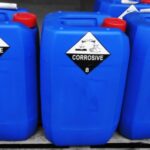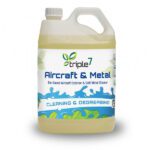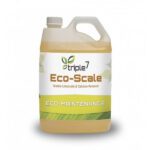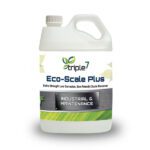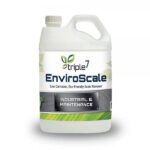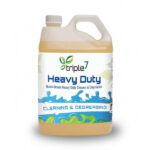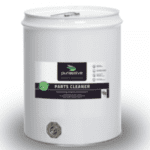Table of Contents
Greenwashing: The Deceptive Practice You Need to Know
In today’s world, where environmental consciousness is on the rise, consumers are increasingly looking for products that are eco-friendly and sustainable. However, this growing demand for green products has given rise to a deceptive practice known as greenwashing, sometimes referred to as eco-deception. Greenwashing involves companies making misleading claims about the environmental friendliness of their products to attract consumers. This article delves into the intricacies of greenwashing, particularly within the context of industrial chemicals, and highlights the importance of vigilance to avoid falling victim to this deceptive practice.
What is Greenwashing?
Greenwashing is a deceptive marketing practice where companies falsely portray their products as environmentally friendly or sustainable. This is typically done through misleading advertising, vague labels, and publicity stunts that have little to no connection with the actual environmental impact of the product or company. The goal is to make consumers believe that the product is safe, natural, and eco-friendly, even when it is not.
The Mechanics of Greenwashing
Greenwashing often involves placing a label on the front of the package, giving the impression that the product is environmentally friendly. However, a closer inspection might reveal that the product contains preservatives and other chemicals that are far from eco-friendly. This deceptive practice not only misleads consumers but also puts them at risk of using unsafe products.
The Dangers of Greenwashing
Greenwashing has far-reaching consequences, both for consumers and the environment. By misleading consumers into believing that a product is environmentally friendly, companies can undermine genuine efforts to promote sustainability and environmental protection.
Risk to Consumers
When consumers are misled by greenwashing, they might inadvertently use products that are harmful to their health. For instance, a product marketed as natural and safe might contain harmful chemicals that can cause adverse health effects. The false sense of security provided by greenwashing can lead to the use of unsafe products, putting consumers at risk.
Environmental Impact
Greenwashing can also have a detrimental impact on the environment. When companies falsely claim that their products are eco-friendly, they might not take the necessary steps to reduce their environmental footprint. This can lead to continued pollution and environmental degradation, defeating the purpose of promoting sustainability.
Greenwashing in Industrial Chemical Jargon
Greenwashing is particularly prevalent in the industrial chemicals sector, where the stakes are high, and the potential for harm is significant. Industrial chemicals encompass a wide range of substances used in various industries, many of which have the potential to harm human health and the environment.
Misleading Claims
In the context of industrial chemicals, greenwashing can involve making false claims about a product’s environmental impact or safety. Companies might portray dangerous and toxic chemicals as sustainable and environmentally beneficial, using deceptive marketing techniques to attract environmentally conscious consumers.
Impact on Trust
When companies engage in greenwashing, they erode trust in genuinely sustainable products and practices. Consumers become skeptical of environmental claims, making it harder for truly eco-friendly companies to gain traction. This undermines efforts to promote environmental protection and can discourage consumers from making sustainable choices.
Greenwashing and Corporate Social Responsibility
Greenwashing often occurs when companies fail to take genuine steps towards corporate social responsibility (CSR). Instead of investing in sustainable practices, these companies use greenwashing to create a facade of environmental responsibility.
CSR Failures
When a company does not have its act together in terms of CSR, it might resort to greenwashing to improve its image. This can involve labeling products as “green” or “eco-friendly,” even when they are not. Such practices can mislead consumers and create a false sense of security, allowing companies to avoid making meaningful changes to their operations.
Encouraging Genuine CSR
To combat greenwashing, it is essential to promote genuine CSR. Companies should be encouraged to take real steps towards sustainability, such as reducing emissions, using eco-friendly materials, and adopting environmentally friendly practices. By fostering a culture of genuine CSR, we can reduce the prevalence of greenwashing and promote true environmental protection.
Recognizing Greenwashing
Consumers need to be vigilant and informed to avoid falling victim to greenwashing. Here are some tips to recognize and avoid greenwashing:
Scrutinize Labels and Claims
Be wary of vague or ambiguous claims such as “all-natural,” “eco-friendly,” or “green.” These terms can be used deceptively and might not reflect the true environmental impact of the product. Look for specific certifications and evidence of sustainability practices.
Research the Company
Investigate the company’s overall environmental practices. A company that is genuinely committed to sustainability will have transparent information about its practices and initiatives. Look for detailed reports and third-party certifications that verify the company’s claims.
Check for Certification
Look for credible certifications from recognized environmental organizations. Certifications such as USDA Organic, Fair Trade, and Energy Star can ensure that the product meets specific environmental standards.
Be Skeptical of Green Packaging
Green packaging can be misleading. Just because a product is packaged in green or with images of nature does not mean it is environmentally friendly. Always look beyond the packaging and evaluate the product’s actual environmental impact.
Greenwashing in Industrial Chemical Consumer Protection and Legislation
In response to the rise of greenwashing, several countries have implemented consumer protection and green marketing legislation to prevent deceptive practices. These laws aim to protect consumers and promote genuine environmental sustainability.
Australian Consumer Law (ACL)
In Australia, the Competition and Consumer Act 2011 includes the Australian Consumer Law (ACL), which makes it illegal for companies to mislead or deceive consumers. Firms that engage in greenwashing can face penalties under this legislation. The ACL ensures that environmental claims are truthful and verifiable, providing consumers with reliable information about the products they purchase.
European Legislation
In Europe, two fundamental provisions govern environmental disputes and protect consumers from greenwashing. These laws cover all types of marketing, including product packaging, names, labeling, advertising, and promotional materials. Companies are prohibited from making false or misleading representations and engaging in ambiguous or indirect deceptive activities.
United States Regulations
In the United States, the Federal Trade Commission (FTC) has established guidelines for environmental marketing claims, known as the Green Guides. These guidelines provide detailed information on how businesses can avoid making misleading environmental claims. Companies that violate these guidelines can face legal action and penalties.
Conclusion: Combatting Greenwashing
Greenwashing undermines genuine efforts to promote sustainability and environmental protection. By creating a false sense of security, it misleads consumers and allows companies to avoid making meaningful changes to their practices. To combat greenwashing, it is essential to raise awareness and promote vigilance among consumers.
Educating Consumers
Educating consumers about the dangers of greenwashing is a crucial step in combatting this deceptive practice. By providing information on how to recognize greenwashing and make informed choices, we can empower consumers to avoid being misled.
Promoting Transparency and Accountability
Companies must be held accountable for their environmental claims. By promoting transparency and requiring third-party verification of sustainability practices, we can ensure that environmental claims are truthful and reliable.
Supporting Genuine Sustainability
Encouraging companies to adopt genuinely sustainable practices is key to reducing the prevalence of greenwashing. By supporting businesses that are committed to sustainability and holding those that engage in greenwashing accountable, we can promote true environmental protection.
In conclusion, greenwashing is a deceptive practice that undermines genuine efforts to promote sustainability. By raising awareness and promoting vigilance, we can combat greenwashing and support genuine environmental protection. Stay informed, scrutinize claims, and support companies prioritizing sustainability over deceptive marketing practices.
To combat greenwashing, our company is committed to providing only genuine, eco-friendly cleaning products for industrial applications. We proudly distribute products from Envirofluid, an Australian company renowned for its sustainable solutions. These industrial cleaning solutions include acid replacements, degreasers, and solvents, specifically designed to address a wide range of cleaning challenges such as limescale removal, rust cleaning, and oil and grease degreasing.
Envirofluid’s products are formulated with the environment in mind, ensuring that each product is not only effective but also safe for the planet. Our acid replacements are designed to be as powerful as traditional acids without the associated environmental hazards. They offer superior cleaning performance while being biodegradable and non-toxic, providing a safer option for both users and the environment.
Our range of degreasers and solvents is equally impressive, offering robust cleaning power for industrial applications while being free from harsh chemicals that can harm the environment. These products effectively break down and remove heavy oils, greases, and contaminants without compromising the health of users or the ecosystems they interact with.
By choosing our green products, you’re not only enhancing the efficiency of your industrial cleaning processes but also making a conscious decision to support sustainability. Our products help reduce environmental impact, promoting a healthier planet for future generations. We believe that genuine green products are the way forward, and we are dedicated to leading by example in the industry.
Together, we can embrace truly sustainable practices and make a positive impact on the environment. Our commitment to providing authentic eco-friendly cleaning solutions reflects our dedication to environmental stewardship and our responsibility to our customers and the world. Let’s lead the way in adopting genuinely green products for a cleaner, safer, and more sustainable future.
For more information on genuine eco-friendly products, reach out to us at info@esp-ultrasonic.in or call us at +917550032102. Together, we can promote true sustainability!





